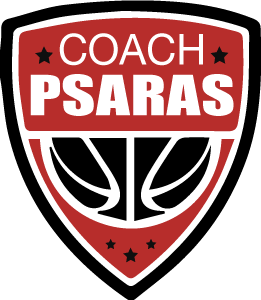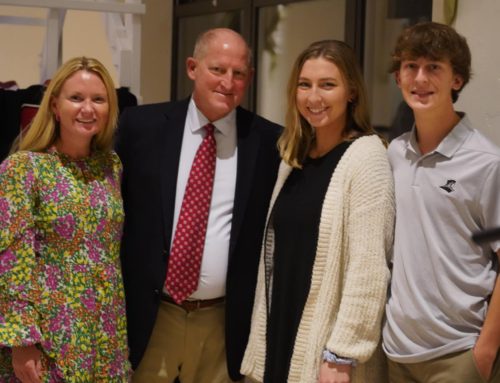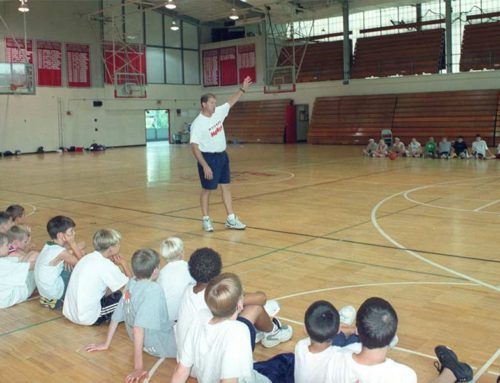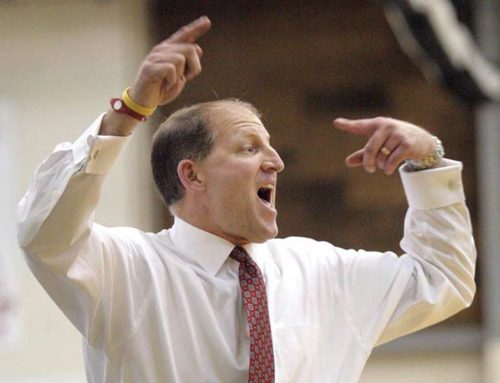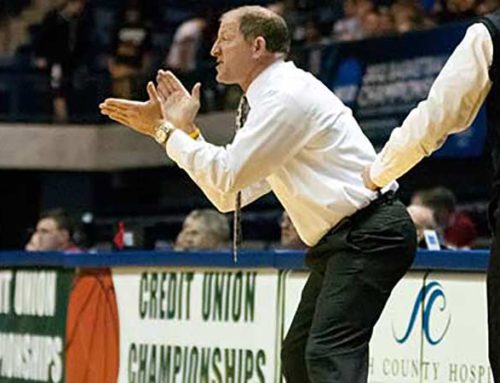By John Gillooly, Journal Sports Writer, Providence Journal
March 15, 2011
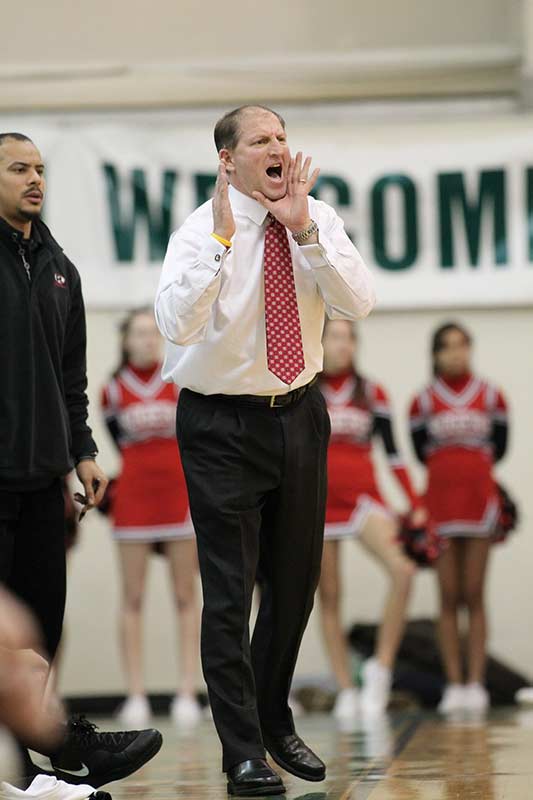 Back in March 1990, Jim Psaras was in his second year as the Rogers High boys basketball coach — a young coach whose enthusiasm was evident from his every move on the sidelines. Rogers was “playing up” those days. Even though the school’s enrollment would have allowed it to play in Division II, the Vikings were a Division I team. It was a team made up more of good athletes than year-round basketball players. It was a team that reflected its coach’s love of competition. When the season was over, Rogers was the state champion. It was the first time in 27 years Rogers had won a state basketball title at any level.
Back in March 1990, Jim Psaras was in his second year as the Rogers High boys basketball coach — a young coach whose enthusiasm was evident from his every move on the sidelines. Rogers was “playing up” those days. Even though the school’s enrollment would have allowed it to play in Division II, the Vikings were a Division I team. It was a team made up more of good athletes than year-round basketball players. It was a team that reflected its coach’s love of competition. When the season was over, Rogers was the state champion. It was the first time in 27 years Rogers had won a state basketball title at any level.
Psaras coached the Vikings to another Division I state title 1991, and another in 1993, but that was the last time Rogers won a state basketball title. Psaras, however, is still there — still coaching with the same enthusiasm as he did when he was the young, unknown coach making his mark back in the early 1990s. All of which is why I found it interesting about a week ago when I saw Psaras’ quote “I’ve had better weeks,” after Rogers lost in the opening round of the all-inclusive state boys basketball tournament. Six days earlier, Rogers had lost in the title game of the Division II tournament, but the Vikings still had a berth in the state tournament. It would be another chance to finally add another piece of hardware to the Rogers trophy case. But two days after the divisional title game and two days before Rogers’ first state tourney game, Psaras suspended two starters for violating team rules. It probably wasn’t surprising the Vikings dropped an 18-point decision to North Kingstown in the first round of the state tournament. It was coach’s week from hell — two tournament losses and two player suspensions in a span of seven days.
You would think after a week like that, Psaras would want to spend some time away from the basketball court. Yet there he was, two days after his team was eliminated from the state tourney, sitting on the sidelines watching other teams play in the second round of the tournament. “Why are you still doing this?” I asked Psaras about more than two decades of high school coaching. “Because I still love it,” Psaras said without hesitation.
He has gone from being the hot young coach winning three state championships in his first five years to being the dean of Rhode Island high school boys basketball coaches who hasn’t won a state title in 18 years. Yet he’s still on the sidelines and hopes to be there for several more years because he loves the game and — even more importantly — believes high school coaches make a contribution that can’t be measured by state championship banners alone. “Obviously I love the game, but for me it’s also about teaching. I really enjoying working with young people, passing on knowledge that helps them make decisions about life off the court as well as in basketball,” Psaras said. “For some of these kids, I’m like a father figure and I take pride in being a good role model.”
He has coached for 23 years in era where longevity is no longer a staple of high school coaching like it was in the 1950s, ’60s and ’70s and even ’80s. Too many other family responsibilities. The players aren’t as focused as they used to be because there are too many outside distractions. Too much parental interference. They’re all reasons young coaches offer for leaving the sidelines after short tenures. And they all have credibility.
It’s no different for Psaras. He and his wife have a young family so it’s more than just the coach making sacrifices for his coaching career. He’s coaching at a time when technology makes it easy for teenagers to think the world revolves around them, that everybody is interested in every thing they do, every minute of the day. It isn’t their entire fault. Aren’t pro athletes and entertainment superstars constantly Tweeting to their fans about their every move? Isn’t Facebook about letting people know all about your life? But the “world revolves around me” philosophy is contrary to the concept of team. “Sometimes they don’t understand how they react to situations affects others,” said Psaras. “I had a kid who had his cell phone taken away by a teacher because he had it out in class. He shouldn’t have had it out in the first place, but now he has an attitude because of what the teacher did and he brings that attitude to practice. That affects the whole team.”
So through a game he tries teaching young people they are part of the world in which they live — not the center of it. It’s a problem high school coaches have had for generations, but these days it may be tougher than ever. Teenagers see the NCAA allow Ohio State football players to appear in a big bowl game before serving their suspensions for rules violations. So how can they understand why Psaras would suspend two of his stars before a tournament game? “Everybody makes mistakes, I’ve certainly made my share of mistakes,” Psaras said. “But mistakes come with consequences. I’m sure to some the suspensions seemed a little harsh, but we take pride in what we do and what we do is always in the best interest of the student.” Even if the result is a coach’s week from hell.
